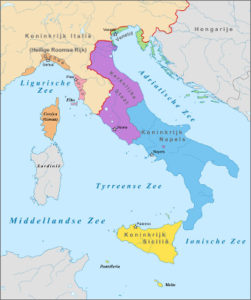Read the entire interview here.
- Central bankers are like “pyromaniac firefighters” creating crisis after crisis, hedge fund manager and economist Daniel Lacalle told BI.
- The 2008 financial crisis happened because of central bank policies, Lacalle said, adding that the next crisis is already being created and could be worse.
- Central bank policies have been a “lottery” for investors but have pushed the rest of the population further into debt, the economist said.
Continue reading Central Bankers are like Pyromaniac Firefighters (Business Insider)

 The populist coalition in Italy has presented an “economic” program and a threat to the European Union that makes Greece look like a walk in the park.
The populist coalition in Italy has presented an “economic” program and a threat to the European Union that makes Greece look like a walk in the park.